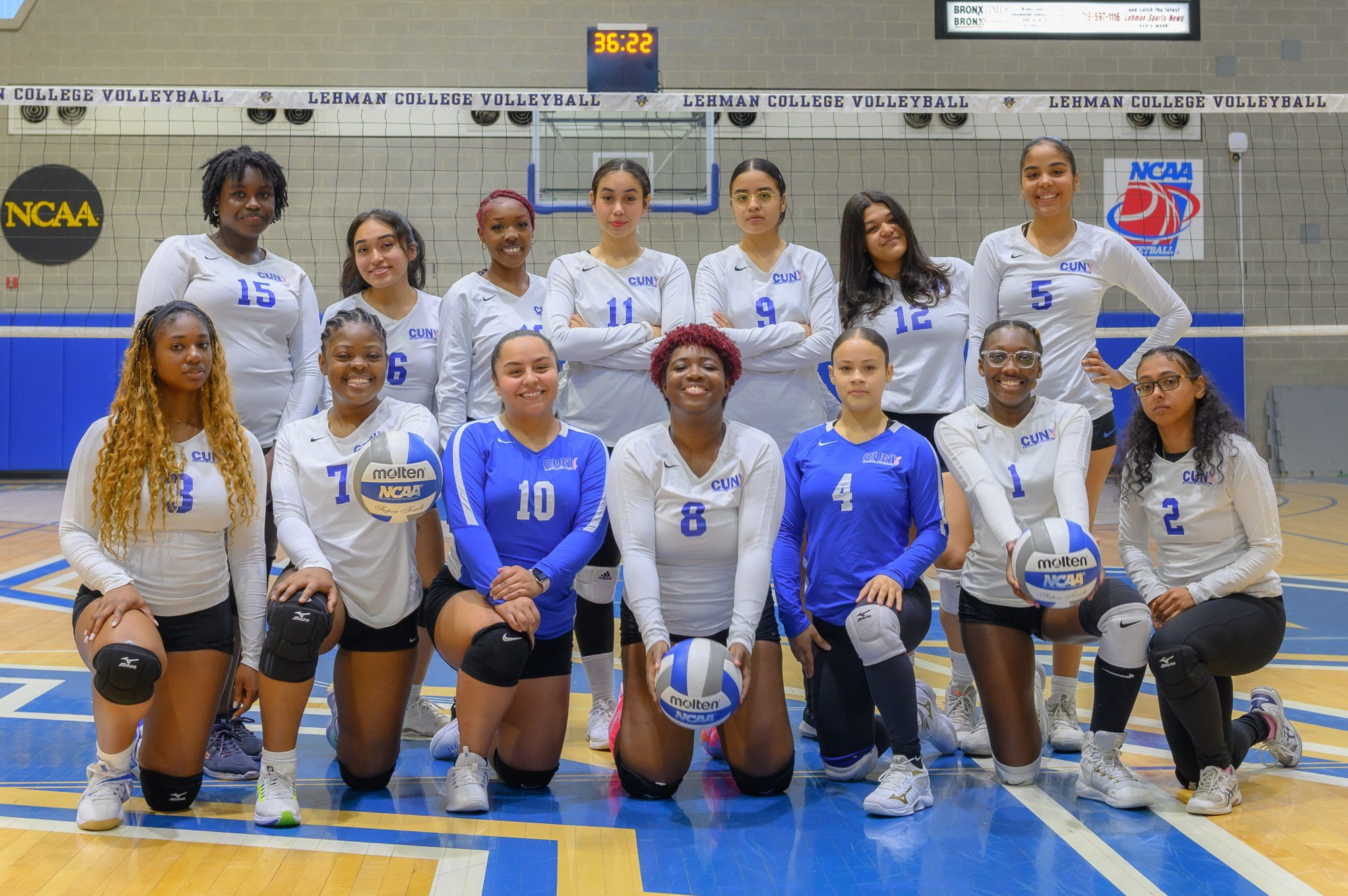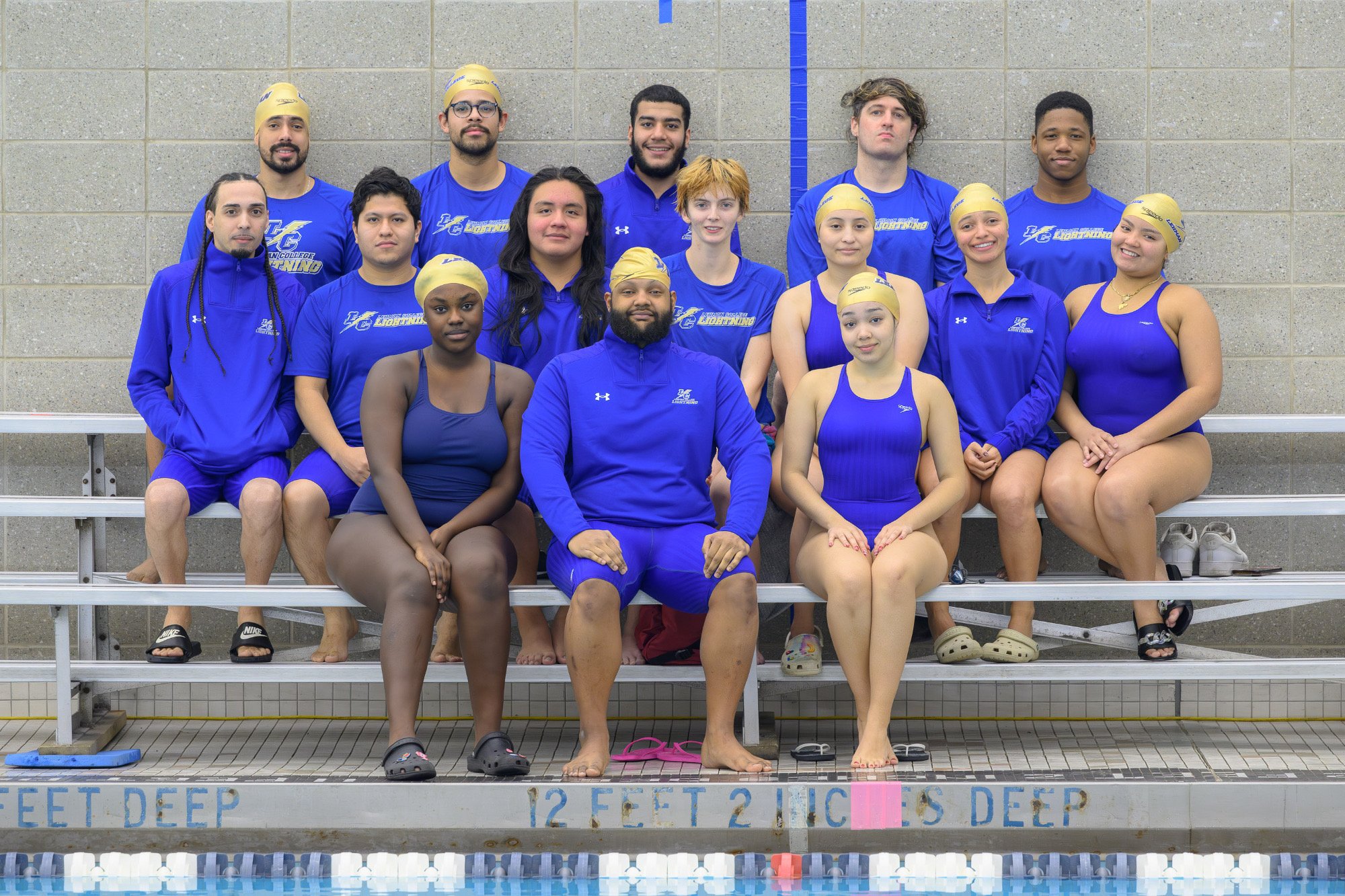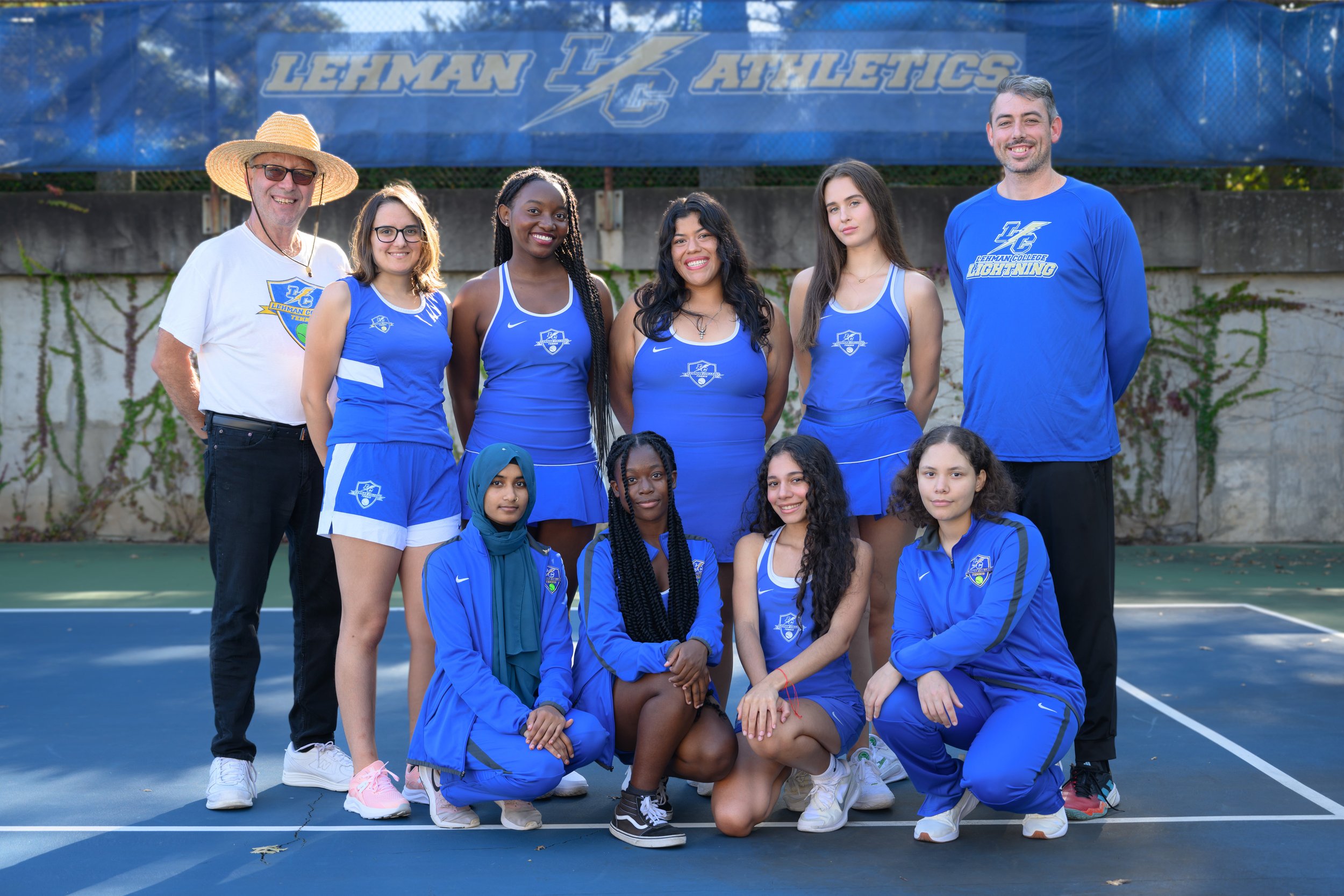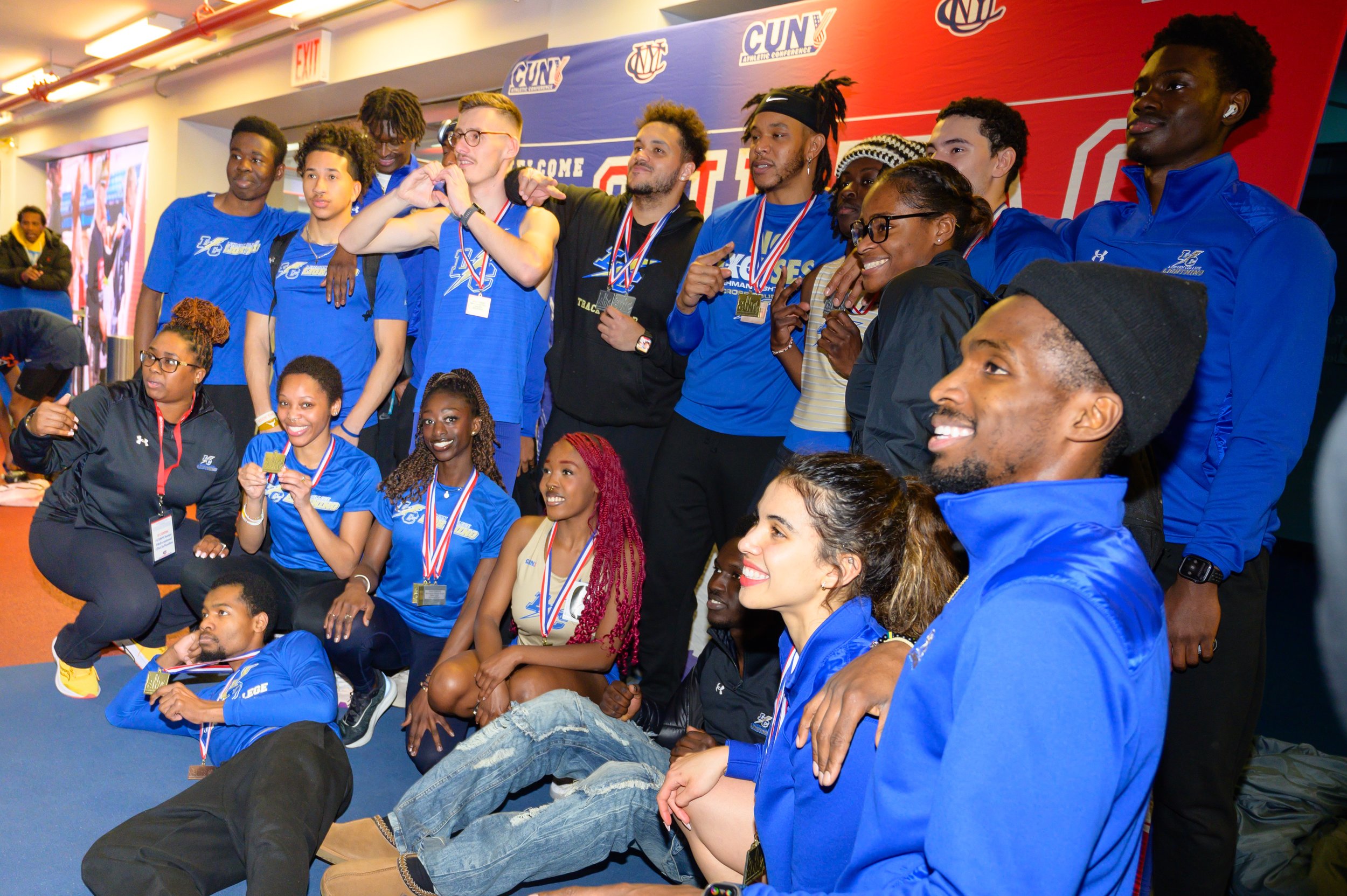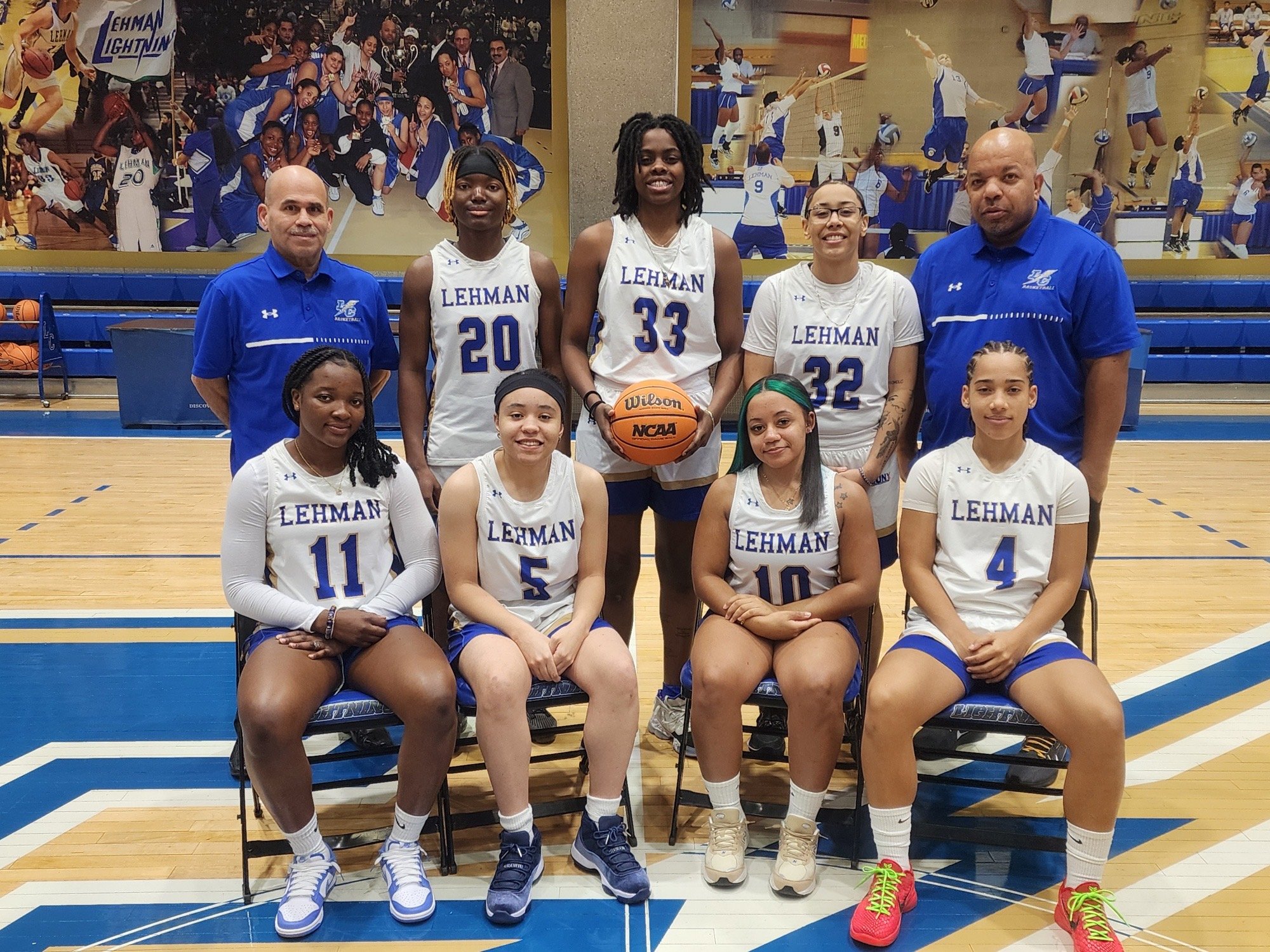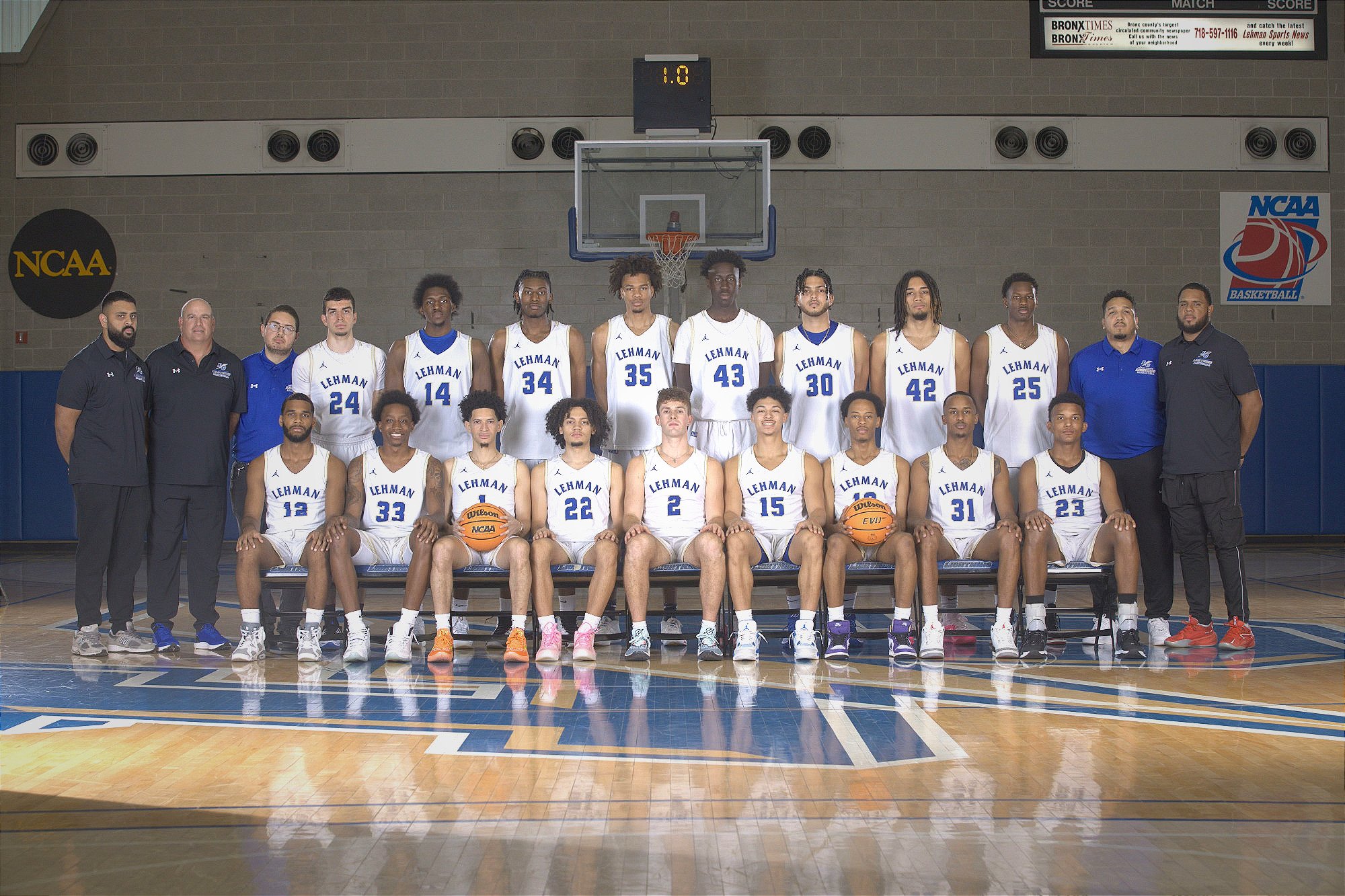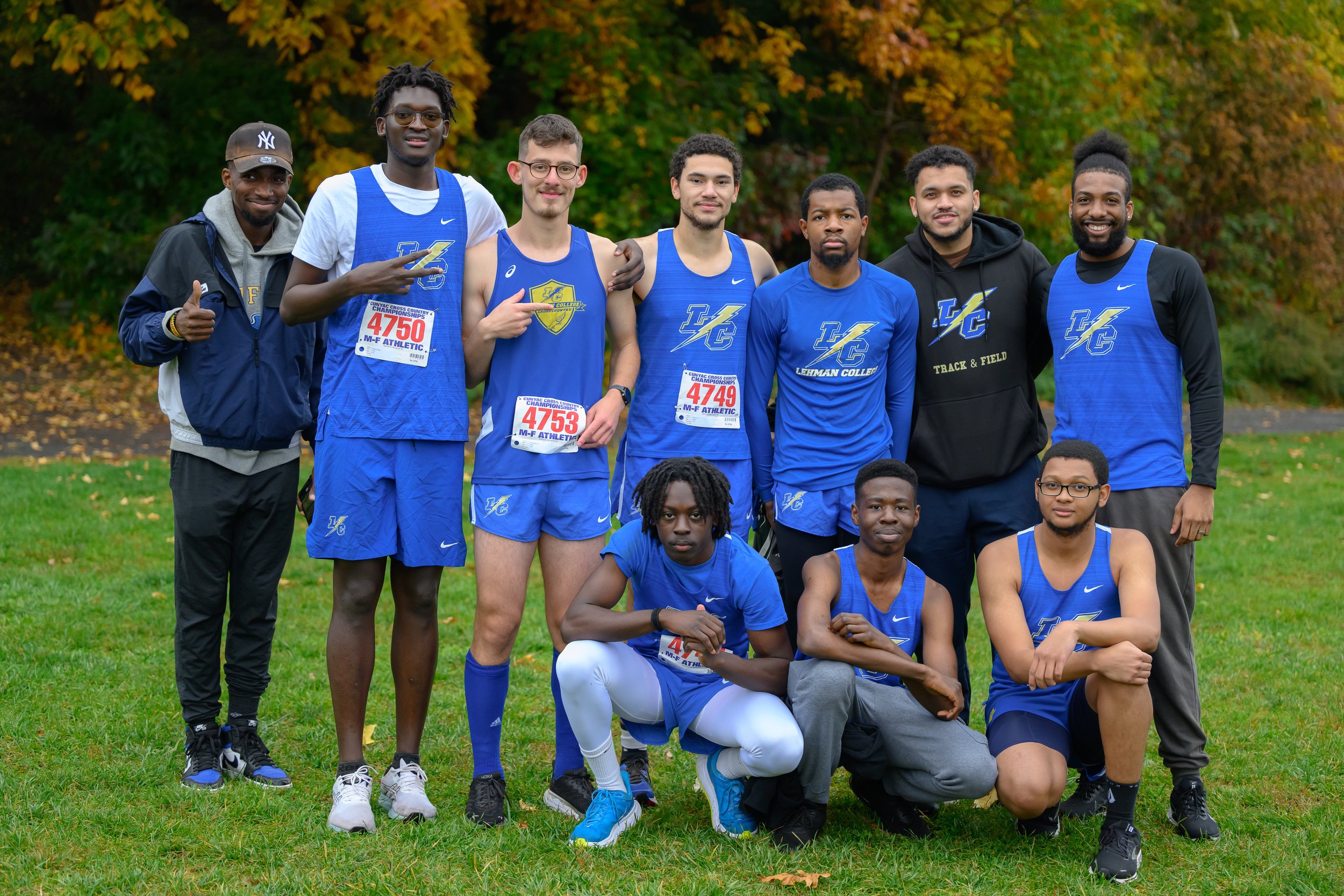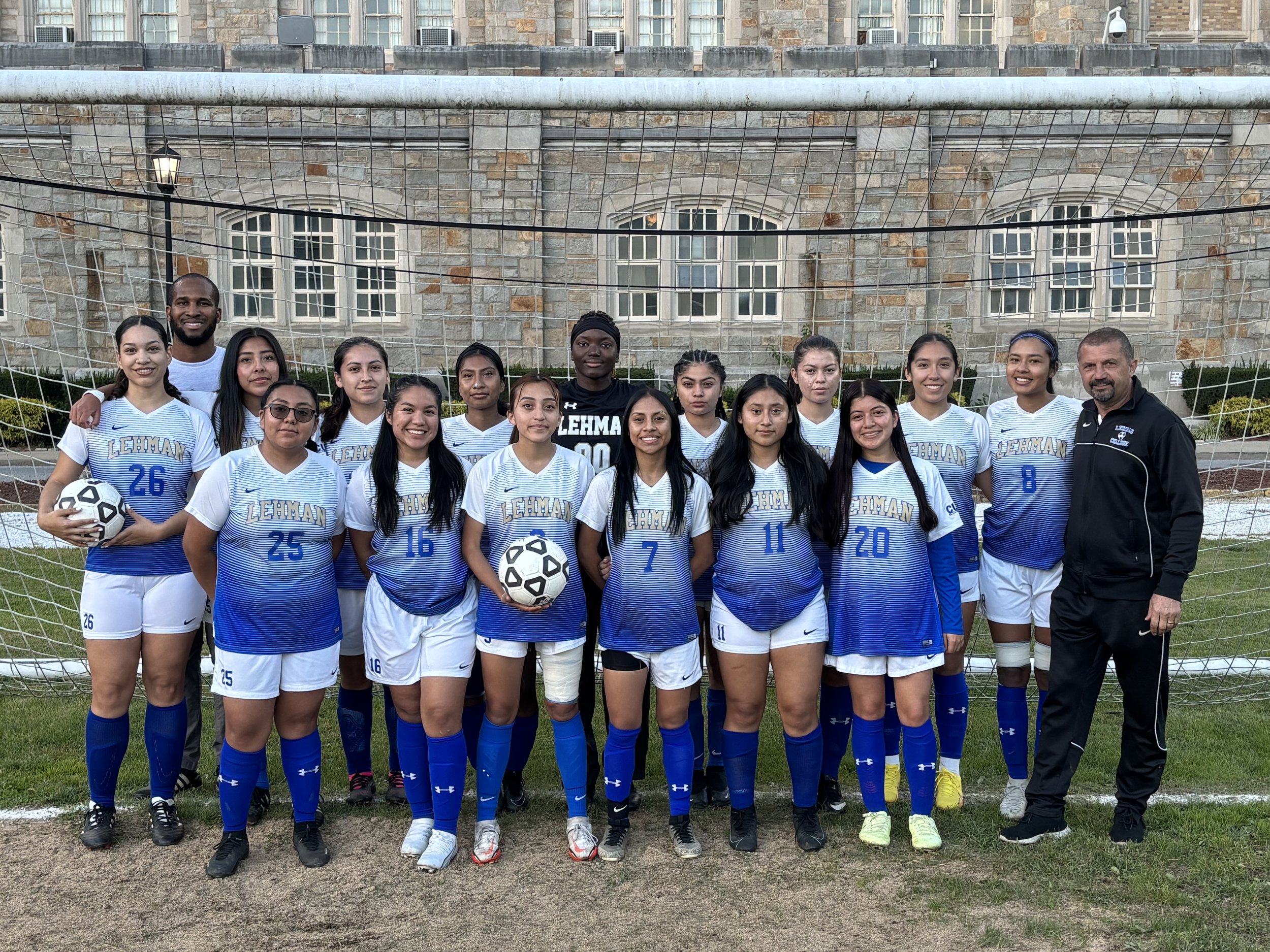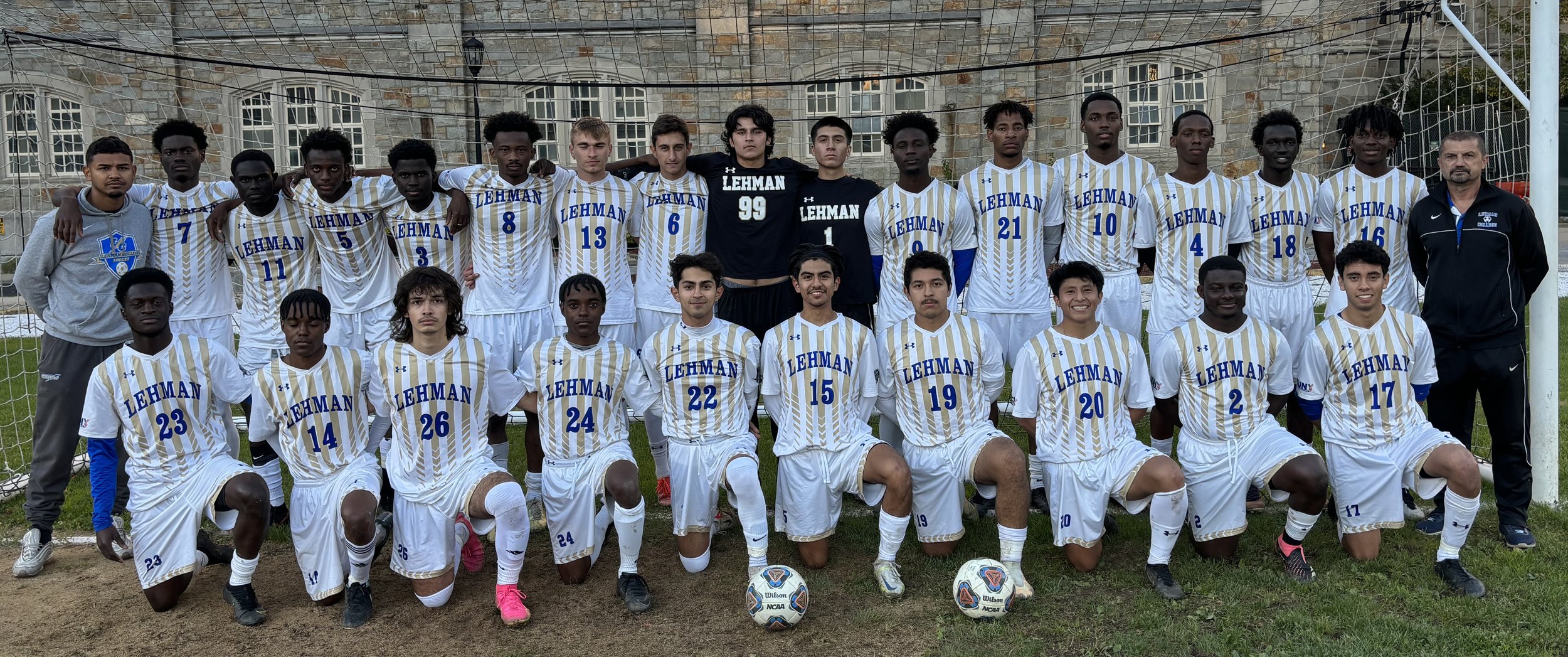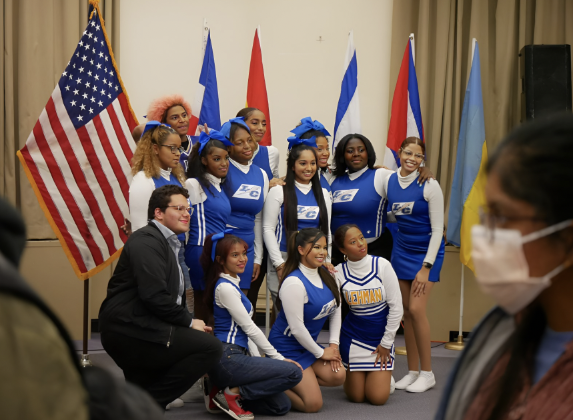Lehman vs Baruch, CUNY’s Powerhouse Rivals
The thrill of beating your opponent while representing your team is a challenge that excites both players and fans alike.
By Brian Cortes The thrill of beating your opponent while representing your team is a challenge that excites both players and fans alike. And this is especially true for the biggest rivalry in CUNY Athletics, Lehman vs. Baruch. These two sides are not only constantly battling it out, but they are also consistently at the top of their division. They compete across multiple athletic fields, often competing for equipment, making every game’s result that much more impactful. This rivalry has kept both sides on their toes, as neither side has fallen out of their high level of performance. It seems that they don’t want to miss each other, and if the past is any indication of the present, this rivalry will see both teams become bigger giants in their division.I was able to speak with Ryan McCarthy, the Director of Athletics and Apex facilities, who oversees various aspects including the facilities, teams, coaches, and everything in between. When asked about his views on the rivalry between Lehman and Baruch, he commented “Three weeks ago today they beat us in the CUNY AC (Athletic Conference) Men’s Basketball Championship by two points, which is especially heartbreaking because it’s the third straight year in which they’ve beaten us.” Despite Baruch having more wins in the rivalry, both schools demand to see each other constantly at the finals. However, there is a more competitive aspect to the bigger picture. As McCarthy later comments, “Two years ago we beat them in the CUNYAC Men's Soccer Championship. Then last year Baruch was the first-place Baseball team in CUNY AC, but we beat them in the Cunyac baseball playoffs to go to the baseball championship.” The competitiveness of both schools spreads across multiple CUNY athletic conference sports, contributing to the growing rivalry between both sides. Throughout this long competition, both schools will find themselves changing their position in the rankings, exchanging the lead. It is normal for any team to go through. At times, Lehman teams may find themselves experiencing a low point. Ryan explains the difficulty of guiding the team out of that position. He says “That [doing this] could come in a lot of ways you know, I think it’s about showing support. Whether that's at an individual basis to students, on a team basis, whether it’s for coaches, whether it’s from coaches whether it’s from my administrators and I.'' It's clear that all parts of the Apex show up and tend to all aspects of their teams, making sure they can be present and put in all their effort to participate in this rivalry. I later asked Ryan what he thought about the rivalry, and he responded “It’s been a friendly and competitive rivalry at the same time,” and “There's no bad blood, it's more out on the court or out on the field.” Rivalries in sports tend to get nasty and build up real animosity between the participants. Luckily, both schools can focus on the pros of being rivals and get positive things out of it. The last few years have left a clear track record of the effects of this rivalry. To build a long-standing rivalry like the one that Lehman and Baruch have begun, the results of their games must be more than just for bragging rights. The track record shows that the competitiveness between both schools frequently includes a championship element, which has become a recurring feature of the rivalry. In collegiate sports, it’s a process to establish a system that consistently produces competitive teams. One of the main factors is that after four seasons, athletes graduate and new student-athletes join the team. These newcomers must succeed players and assume the role of trying to emulate the same or higher performance levels. When speaking to Ryan about this, he explained what he thought was a key factor in dealing with this process: “Most teams are only successful as their recruiting is” he later added, “No coach at any time is done recruiting cause the minute you’re done for this year you're already starting for the next year.” The Apex and all its facilities constantly have their foot on the gas to grow and cultivate a winning culture across their various sports teams. The rivalry between Lehman and Baruch looks to deliver showcases of performance and looks to continue the trend this season.Lehman College Pep Rally
Lehman College held its 2024 Pep-Rally for the Spring semester on February 29th, at the Main Gym of the Apex building.
By Adolfo MilianoLehman College held its 2024 Pep-Rally for the Spring semester on February 29th, at the Main Gym of the Apex building. 71 students participated in the event and cheered for their fellow student-athletes. The college hosts Pep rallies at the beginning of every semester to promote the sports teams. Upon arriving at the Pep Rally, students were provided with food and beverages at the entrance of the Main Gym. During the event, students were introduced to the Spring Sports teams playing this semester, which include Men’s Volleyball, Baseball, and Women’s Softball. Soon after, the audience got to engage in many activities organized by the sports teams. A total of 7 mini-games took place, ranging from Volleyball to Tennis, from Baseball to musical chairs. All students participated in these activities and connected with their peers. At the end of each mini-game, the winners were awarded prizes like keychains, stickers, and water bottles. Overall, these activities familiarized students with Lehman’s sports teams and provided them with a fun afternoon.Some Lehman students shared their thoughts about the event. “It was a fun gathering,” said Lehman student Zakh Duncan. “We got to play games and meet new people.” Another student, Angel Matute, shared: “I feel like this is a way to get people active. College can be stressful so maybe this can get them energized.”Osman, a sophomore who is part of the Volleyball team, said, “I liked that every team tried to make a cohesive event for people to come and enjoy. It's not every day that people can come to the campus and have an organized event to relax at.” Additionally, he also reflected on how these kinds of events can help the school teams perform better, especially on home grounds. “I think this can be a morale boost,” he said. “Playing on the court you practice on is a very big positive. It boosts your confidence.” The Men’s Volleyball team played against Baruch College on the same day as the Pep Rally, with a final score of 3-0 in favor of the hosts. Throughout March, Lehman College hosted 6 Volleyball games, 4 Baseball games, and 3 Softball games.Ryan McCarthy, the Director of Athletics at the Apex Facilities, expressed, “I think it is a really good event because it unites students from between teams who might not get a chance to meet and interact with other students, and students from outside of athletics who might not get to interact with student-athletes.” he highlighted. “So being a commuter campus, it’s probably all more important to do these kinds of events. They’ve been really well attended by both athletes and the student body.” The next Pep-Rally student can look out for would be during the beginning of the Fall Semester, where students will be introduced to the Fall Sports Teams which include Men’s Soccer, Men’s Basketball, Men’s Cross Country Women’s Volleyball, Women’s Basketball, Women’s Soccer, and Women’s Tennis.Having Trouble Picking a Major? Lehman is Here to Help
Many college students often experience nervousness about career options or uncertainty about their dedication toward a major.
By Sarah ElabidMany college students often experience nervousness about career options or uncertainty about their dedication toward a major. At Lehman College, students are offered the chance to explore a variety of pathways. Students should take their time, seek help, and self-reflect when making important decisions.
There are multiple reasons why college students may need help to decide on a particular field of study. Some may experiment with various subjects to discover their real passion, while others might find it difficult to narrow their interests to just one.
It is common for students, whether they are first-year students or have already taken some college classes, to experience uncertainty. According to the University of South Florida, “an estimated 20-50 percent of students enter college undecided, and up to 75 percent report having changed their major at least once.”
As stated by Herzing University, students should consider their values, interests, and abilities while selecting a major. What skills come naturally? What pursuits provide a sense of fulfillment? When planning out their career route, students must research the undergraduate degrees offered by Lehman. Lehman offers more than 80+ undergraduate majors that students can explore while choosing potential majors that may resonate with them.
“When I first came to this school, I had absolutely no idea what I wanted to pursue. I came here not believing in myself, I thought I was not good at anything. However, that is when I had my first film class, which was a real revelation for me.” shares Xandar Reyes, a film studies major.
Moreover, Lehman offers students the opportunity to consult with experienced academic advisors who can assist them in making informed decisions when faced with uncertainty. It is recommended that students seek advice from academic advisers, professors, and professionals.
“Even when things got difficult and I was treading on uncomfortable paths, I still looked forward to working some more. It is an interesting feeling. Not only that, but the people I got to work with were amazing, super talented, and supportive. They twisted my arm and made me fall in love with the art.” says Reyes.
Academic advising is available to students on campus in many ways. The most common way students can access these unique services is through Lehman Navigation. This application enables students to arrange virtual sessions with advisers. Lehman’s academic advising can also avail in-person consultation at room 280 of Shuster Hall.
Advisors are experts in helping students understand the requirements of various degrees and career pathways. This guidance aids students in discovering a major that reflects their goals. Advisors can also offer valuable information about extracurricular activities and internships that help advance their careers.
Media Communications Studies Professor Ian Sheinheit shared a story regarding his experience discovering his passion for teaching in college. “During my undergraduate career, I developed an interest in thinking about how social phenomena impact politics, culture, and individuals. I had some fantastic professors and advisors who guided me toward thinking critically about this impact. I began thinking about the career-oriented question of my skills and assets and how I can use those to engage this passion.”
Lehman College provides many resources for students to establish relationships with other goal-oriented students that could help them in their career growth. For example, joining a club on campus. Juan Santos, an economics major, describes how starting the Lehman Financial Learning Club has enhanced his student and professional experiences. He began his professional career by aiding other students in their growth through the Financial Learning Group. “At first, I wanted to be an architect, then a Lawyer, and then I found economics. I knew I wanted to learn more about building wealth, which is one of the reasons why I started my club. I wanted to be able to share my knowledge of financial services and help students learn about wealth management.,” states Santos.
Being flexible allows students the freedom to try new things and have an open-minded approach that can bring forth opportunities. Professor Sheinheit encourages students to step out of their comfort zones, gain self-confidence, and expand their horizons.
“To think about what they are passionate about and try to answer the question, ‘How can I overlap my major choice with some qualities of that passion?’ Be flexible and do not ossify your path,” states Professor Sheinheit.
Students should treat themselves with self-kindness and understanding. They can do this by setting realistic goals, engaging in activities that bring them joy, and celebrating progress no matter how small it may seem. It is important to remember that they are not alone, and should never hesitate to ask for assistance or guidance. Lehman College always provides support through its academic advising services, which are accessible in person on weekdays from 9 AM to 5 PM. Students Devastated as FAFSA Delays Persist
Many college students are lost, angry, frustrated, and confused because of the changes to the FAFSA Application.
By Megan Walls and Alixia VinielpayanoMany college students are lost, angry, frustrated, and confused because of the changes to the FAFSA Application. Some students have been discouraged from filling out this crash-prone website due to its misleading questions. Filling out the FAFSA applications for some students can lead to a debt-free college education or a lifetime of student loan payments. Shiym, a Lehman College student in their junior year, says “It is an unfortunate situation for students that are just starting their college career as the delay could impact their discussion in where they might go.” Students find the new FAFSA process easier to deal with than in previous years. While some students love the changes, others consider it unnecessary. Shiym says “I am glad it separated my section from what my parent’s needed to fill out.” Meanwhile, Brendon, a junior at Lehman says, “Certain questions weren’t as necessary as others.” The new process allows for undependability, it separates the student from their guardian’s needed information. It means no more looking through tax returns and searching for a social security number or gross income. Instead, it asks a few questions, including asking for permission to access tax information online from students and their parents/guardians.Due to recent time-saving changes, the FAFSA application, which usually opens on October 1st every year, has been delayed until December 2023. As a result of this delay, many high school seniors have already decided what colleges they will be attending. By January or February, they would have already known which college was in their best financial interest. With the delays to the FAFSA application, the decisions of which colleges to attend have been prolonged until further notice. The FAFSA Simplification ActThe FAFSA Simplification Act is a new law that aims to showcase a remodeling of the online process to grant federal student aid. Starting in the 2024- 2025 award year, this act will simplify the FAFSA process known for consisting of deadlines. In 2020, Congress requested that the Education Department refine the FAFSA form by December 31st, 2023. However, the chief operating officer of Federal Student Aid, Richard Cordray, has prioritized other initiatives, causing FAFSA to take a back seat for over three years.
The lack of effort on their part has led to many life-altering decisions being put on hold as students await their financial aid package information. Margaret, a Junior at Lehman College, iterates her annoyance with the continuing delays of the FAFSA form. “The delays are frustrating and become an inconvenience for those who don’t have a lot of time.” In the prior years, one person could complete the FAFSA application documents provided by their parents, and the only thing students would need was a parent’s FSA ID and their parents' signature at the end of the process. However, with the new changes, parents must answer their own set of questions before the application is officially submitted. When asked if they considered these changes necessary, students responded with “No, I do not. I highly prefer the old system.” The old system had many questions, but not all needed to be answered directly. Financial status and tax information could be accessed and inputted into the FAFSA application through the IRS after filling out basic information like social security number, name, and address. However, this new process is more than just changes that cause students uncertainty. The application occasionally crashes, and parents who do not have a social security number are now having trouble creating an FSA ID.In the face of the social security issues that have been troubling the parents of immigrant students, a Lehman College student has addressed their feelings saying, “ I think it’s bad for the immigrant students who are trying to go to college and make a future. It’s unfair.”There have been recurrent issues with the FAFSA application, mainly delays in the disbursement of information across colleges and universities. One mistake that could be catastrophic is that “The U.S. Education Department's FAFSA math, for deciding how much aid a student should get, is wrong.” (Turner, Jan 23, 2024) The math issue is one of the contributing factors to the delays. To alleviate uncertainty among its students, Lehman College has been actively sending messages with links to video tutorials, and additionally hosting in-person events to guide students who either have questions or need help filling out their FAFSA forms. The upcoming events, which are by appointment only, take place respectively on the Wednesdays of March 13th and April 17th from 11:00 am - 3:00 pm in the Music Building East Dining Room. The APEX at Lehman College
The APEX at Lehman College is an exceptional hub for sports and fitness.
By Jaylin Parris-RossThe APEX at Lehman College is an exceptional hub for sports and fitness. The facility is accessible free of charge to all currently enrolled Lehman students. Additionally, members of the CUNY faculty and staff are eligible to join. The APEX has a range of amenities including a pool, fitness center, weight room, indoor track, basketball courts, racquetball rooms, and dance studios.Ryan McCarthy: Director of Athletics and The ApexRyan McCarthy has been the Athletic Director for Athletics since March 2022, overseeing the APEX facility and the 18 lightning teams. His responsibilities encompass coaching student-athletes, and ensuring the efficient operation of the APEX at an institutional level. Before his role at Lehman, McCarthy was the Director of Athletics at Bronx Community College; he held the position of Associate Director at Pratt Institute. In addition to his leadership roles, McCarthy has been involved in sports statistics since 2013, working as an in-game electronic statistician for both professional and collegiate basketball games at Madison Square Garden and the Barclays Center. He is also the official scorer for the Brooklyn Cyclones, a Single-A affiliate of the New York Mets, and a statistician for the NBA's Brooklyn Nets. McCarthy obtained his B.A. from the Jandoli School of Journalism and Mass Communications at St. Bonaventure University, followed by an M.S. in Student Personnel Administration from Buffalo State College of the State University of New York.Lenn Margolis: Assistant Athletic Director for Sports Information and IntramuralsSince October 2015, Lenn Margolis has been a member of the Lehman Athletics team, serving as the Assistant Athletic Director for Sports Information and Intramurals. Margolis contributes to the daily operations of the APEX and is responsible for managing all facets of public relations for the athletics department. His duties include administration of the athletics websiteLehmanathletics.com, the management of athletic social media accounts, etc. Margolis also brings personal athletic experience to his position, having been a soccer player for his university team. He earned his B.S. in Sports Management 1984 from the University of Massachusetts.Georgia Efthalitsides: Associate Athletic DirectorGeorgia Efthalitsides, is Associate Director of Athletics, joined the APEX in September 2020. Efthalitsides has a list of responsibilities similar to the Athletic Director. NCAA/CUNYAC Compliance is her primary function and responsibility as he am the sole person in this role/function. Efthalitsides also serves as faculty advisor for the Student-Athlete Advisory Committee (SAAC), supports the administration and leadership of Lehman's eighteen varsity sports, and represents the company at various conventions. Additionally, she provides academic advising to ensure student-athlete success. Efthalitsides holds a bachelor's degree in criminal justice from Mercy College (2006) and a master's degree in physical education and sports pedagogy from Manhattanville College (2013).Durval Morgan: Head Athletic TrainerSince August 2014, Durval Morgan has served as the athletic trainer for Lehman Athletics, providing medical support for over 200 Apex athletes participating in 18 sports. Morgan manages the medical care of student-athletes, including injury prevention, assessment, and emergency care. Additionally, he assists in the process of medically clearing athletes recovering from injuries. Bob Harris: Fitness Center ManagerBob Harris: Fitness Center Manager Robert 'Bob' Harris has been integral to the Apex Fitness Center since its inception in 1994, serving as the fitness center manager. Harris is not only responsible for the daily management of the facility but also for the creation and implementation of innovative programs, such as 'Lehman's Biggest Weight Loss & Fitness Challenge.' His educational background is solidly rooted in the field, having obtained a Bachelor's degree in Physical Education from SUNY Cortland and a Master's degree in Kinesiology from the University of Connecticut. This academic foundation has been pivotal in Harris's ability to effectively lead the fitness center and contribute to the well-being of its members. The 18 sports offered at Lehman College encompass women’s softball, men’s baseball, basketball, cross-country, indoor and outdoor track, soccer, tennis, volleyball, and swimming and diving for both men and women.A Model in a Small World in the Form of Lewis Ricardo Gordon
In an auditorium at the Music Building here at Lehman on the 15th of February, I had the opportunity to meet and interview Prof. Lewis Gordon and his wife Prof. Jane Anne Gordon.
By Jay-Dani GuzmánIn an auditorium at the Music Building here at Lehman on the 15th of February, I had the opportunity to meet and interview Prof. Lewis Gordon and his wife Prof. Jane Anne Gordon. We discussed the ideas in question and shared anecdotes of our surprisingly converging experiences. Writing this profile allowed me to highlight Lewis Gordon and his book titled ‘’Black Existentialism & Decolonizing Knowledge,’’ which provided a worthy payoff for meeting the author, thus opening a door that I might have otherwise overlooked. Although today’s focus is on the aforementioned title, it must be acknowledged as the work of a family. Having read that Lewis and Jane are a perfect complement to each other, when asked about its verity Mrs. Gordon said that she “hope[s] that is true,” which was all the confirmation I needed.The Gordons have ties to Lehman that span four decades. Mr. Gordon was a student here, undertaking eight classes per semester as an undergraduate without having declared a major. According to Prof. Gordon, that was both fun and a privilege, an experience he wishes today’s students could appreciate.In his talk, he reflected on how leaving Lehman with more credits than needed for any major provided him with a knowledge and understanding of the world that would become the foundation for his entire life. He embarked upon entering the wide world, with just an undergraduate degree.The Gordons have worked across the globe on every continent except Antarctica–a detail to be revisited shortly. Mr. Gordon, respected by his peers as a “global scholar”, told me that he views the world as “a small, fragile blue dot” after having traveled and studied it extensively. His understanding of the world started right here in the Bronx, a realization we would do well to embrace.When asked which aspect of his work he hoped would endure, he and his wife concurred that it should be the shift in the “geography of reason.” For those unfamiliar with the concept, it challenges the idea that important ideas originate solely from specific places and times and that outside of these, there is nothing. Today, many of us understand the world through a Eurocentric intellectual legacy. Whether it be the achievements of ancient Greece, Medieval France, premodern Germany, or colonial Britain, the assumption is geographically speaking, all ideas have emerged from the northern hemisphere. Professor Gordon and many colleagues worldwide wish to advocate that “important ideas have come from everywhere throughout all time”—a simple theory yet impossible for many to understand.Inquiring what the Northern Hemisphere could learn from the Southern Hemisphere. Mr. and Mrs. Gordon were at a loss for words to give a summary of an astronomical and its implications on every person on the planet.“No person is a god [of ideas]’’, they explained. ‘’We are in a very intimate relationship with one another… and what I think a lot of life is about is figuring out what our part is in the larger project. What I think about the global south is that it is a conception born out of the concept of a global north. But ultimately, we must develop a planetary understanding of who we are.”Mr. and Mrs. Gordon have plans to work in Antarctica and Greenland within the next couple of years. The only two places on Earth they have yet to visit, will finally “complete their resume,” as I put it. I welcome all to purchase their books and retrace the Gordon family’s steps, which began right here and will only end if allowed to be forgotten.To the Lehman Community: Self-Improvement Starts Here
Whether you are a faculty member, a first-year college student, or someone who has been at Lehman for a while, we’re seeking self-improvement.
By Itzel CortesWhether you are a faculty member, a first-year college student, or someone who has been at Lehman for a while, we’re seeking self-improvement. There are innumerable podcasts, books, and videos on self-improvement, each presented by a different fitness guru or motivational speaker giving lifestyle advice. This can feel burdensome when many of us are unsure of where to start or even who to listen to. James Clear, author of the #1 New York Times bestseller "Atomic Habits," states, “The seed of every habit is a single, tiny decision.” He asserts that if you’re struggling to change your habits, the problem isn’t you—it's your system. Before emptying your wallet to invest in the latest acclaimed self-help book, it's important to backtrack and think: Which system or method would work for me? It's crucial to reflect on the kind of person you are and choose systems that work with you, not against you. Nobody contests the fact that self-improvement can be tricky, but it doesn’t have to be so complicated.As students and faculty of Lehman, why not utilize the resources in our vicinity? Professor Beauty Kolade, who teaches the First Year Seminar at Lehman College, was once a student at Lehman herself. As a student, Kolade held a 3.94 GPA and secured jobs and internships using campus resources. She recommends the following to students still adjusting to college life: “Networking is the number one piece of advice I give Lehman students. The college experience is inevitable. Get comfortable with being uncomfortable. At some point, you’re going to have to face it. Why not face it now?” While it is important to stay disciplined, Kolade also says that we should remember to practice self-care whenever needed. “Take breaks. Hang out with other students to chill and chat with them. Just remember to take a step back to take care of yourself.”Regarding productivity and self-improvement, it's all about finding a method that suits you. We are all individuals with different needs and ways of learning. Some prefer using social media to traditional methods of organization. Some people like Ashmini Hiralall, may use multiple techniques such as calendars and to-do lists. Ashmini Hiralall, Director of Lehman’s Wellness Program, suggests this to students having difficulty concentrating: "It’s natural to get distracted. Creating the right environment is important to control distractions. Sometimes, that means leaving my phone in another room to prevent temptation. If I’m working on a long project, I schedule 15-minute breaks after an hour or two of working - It allows me to take a break without feeling guilty and return to my task.” What Hiralall emphasizes in terms of guilt-free studying is pivotal for us as college students. Beating for not being a perfect student is never okay. Taking care of yourself after a hard day is liberating and crucial to a healthy school-life balance. Another piece of valuable advice from Hiralall is to prioritize tasks and take advantage of commute time to get things done. Shannon Mensah, Wellness Center Program Coordinator, has an impressive track record: returning to college full–time after ten years, running a nutrition blog with 50,000 followers, and advocating for student health and wellness. Her story is truly awe-inspiring and may have many of us wondering how she does it. Mensah recommends taking advantage of other Lehman resources, such as time-management workshops and free career development classes, which she has utilized herself. She ensures that she prioritizes tasks, writes down deadlines, and uses study apps she enjoys.Mensah also gave me a short consultation about my fitness goals and nutrition towards the end of our interview. I have struggled with working out and have been eating the bare minimum since I was a pre-teen. She advised me that nutrition is vital before hitting any fitness goals. Thanks, Shannon!As a Lehman student or faculty member, try talking to others to see what works for them. Take advantage of the Wellness Center’s resources and the time management, career development, and leadership workshops that Lehman hosts. Visit Lehman’s extensive library and ask the librarians if there are any books on self-improvement. Ask your professor what their college experiences are. The resources for us are vast and endless. Location: Old Gym Building, Room B007‘’Framing the Female Gaze’’ Shows the Beauty of Femininity
The 20th-anniversary season of Lehman Stages showcased an event that explored various perspectives of womanhood.
By Amber Castillo The 20th-anniversary season of Lehman Stages showcased an event that explored various perspectives of womanhood. Titled "Framing the Female Gaze," the event featured a series of three immersive plays; ‘’Who's Gaze is it Anyway?", "Ready or Not", and ‘’Adulting.’’ Written and performed by The Bronx Repertory Company. Lehman's signature Art Gallery was transformed into a beautiful environment that showcased vibrant artworks, depicting sexuality and body positivity. The plays captivated the audience with their humor, emotional depth, and authenticity, which helped manifest what it truly means to be a woman. The debate around womanhood and its impact on society is a prevalent topic in today's world. The plays cover many areas, such as the importance of historical figures like Joan of Arc, marriage, religion, and even racial identity. The event had a diverse perspective on what lies beneath the surface of a woman's life. Women have become more vocal and willing to speak up about their struggles and successes, challenging the presence of immense patriarchy where stereotypes are often enforced. Erica Arakawa, 58, the mother of Alexa Downing, the writer of the first play "Who's Gaze is it Anyway?" expressed her admiration for her daughter's vision. She said, "It was really touching to see the influences of her own being. It was exciting to witness the next generation of creative women writers. I started crying; it was amazing to see my daughter be creative and express herself." "Framing the Female Gaze" was an excellent example of how the creative arts can highlight important issues. The play "Who's Gaze Is it Anyway?", explores the different perspectives of women throughout history. "Adulting" portrays the struggles of two adult women trying to connect after one of them deals with the death of a family member. "Ready or Not" delved into the dating lives of women and the challenges they face in maintaining their friendships when drama arises. Each play was more captivating than the last, with the actors bringing unique twists and quirks to their characters. Cleo, the modern woman in "Who's Gaze Is it Anyway?" was vocal and confident in her beliefs and dedication to her family. Mariam in "Adulting" had playful banter with her friend Liz while trying to maintain a dignified demeanor during a funeral. And Rosalita in "Ready or Not" provided humor and drama with her lively and amusing antics. The event was an emotional rollercoaster with the audience on the edge of their seats. Family, friends, fellow artists, and even aspiring actors all came to appreciate the plays. The presence of art, through expression, was significant in promoting growth. AI has become a rampant phenomenon that has affected the way both writers and actors approach their work. Despite the ongoing battle between the rise of robotic intellect and human innovation, the audience came to provide support to a community willing to go above and beyond to express their passion for their craft. Camille Capers, 25, an actor as well as a friend of one of the cast members, emphasized the importance of her stance, stating, "I think TV, film, and theatre are so important. People have an innate desire to create and tell stories, so I just hope that it continues." At the end of the night, the actors all bowed before the audience, and the event ended with a round of applause. The desire to rebel, excel, love, fight, and even embrace one’s flaws has always been prevalent in femininity. Despite the ongoing oppression, women continue to prevail and thrive. In the words of Cleo, "Are we not human first, before anything else?" From Boardroom to Campus: Our Exclusive Interview with KPMG’s US Chair and CEO (Copy)
On Tuesday, February 6th, the US Chair and CEO of KPMG, Paul Knopp came to Lehman College for an exclusive conversation with President Fernando Delgado.
The Merdian Interview KPMG CEO, Paul Knopp (Photo Credit: NY Jobs CEO Council)
By Thomas Bonner
On Tuesday, February 6th, the US Chair and CEO of KPMG, Paul Knopp came to Lehman College for an exclusive conversation with President Fernando Delgado. The event was organized by the nonprofit organization, New York Jobs CEO Council, whose goal is to provide equal opportunities and break down barriers for New Yorkers from all backgrounds. As a council member, Paul Knopp, along with other business leaders has committed to diversifying his workforce by recruiting from underrepresented talent pools. During his visit, The Meridian had the privilege of conducting an interview where he gave his unique perspective on important topics that are sure to benefit and interest the Lehman community. Although he lives a busy life, he showed up with a willingness to listen and approached each question with an open mind. Based on the information and guidance we received, Lehman students can be reassured that there is great potential within all of us.
Paul Knopp emphasizes the importance of diversity and inclusion at KPMG
The Meridian: “How do your values personally, and at KPMG, help make people from all backgrounds feel more included in your company?”
Paul Knopp: “It's a great question, our values at KPMG are integrity, excellence, courage, together, and for better. When I think about inclusivity and equity, it is important to help everyone at work feel comfortable. In today's world, you need more equity and inclusion to make sure that talent can rise to the top of the organization. We spend a lot of our time talking to our people about the importance of those values. What's important to us is the recognition that a lot, if not all, of what we accomplish as an organization is accomplished in a team environment. Therefore, [we have] to ensure that people know what it means to live the value of together and for the better. That is critically important to the success of the organization.”
Paul Knopp recently joined the Board of Healthy Minds, a nonprofit that's focused on the destigmatization of mental health and emotional well-being mostly among Gen Z and Millennials.
M: “Why is destigmatizing mental health in the workplace so important to you?”
PK: “So, destigmatizing mental health is special to me personally, but it's also very special to KPMG. We all struggle with our own emotional and mental health, every one of us. We all know somebody who struggles even more than we do with their emotional and mental health, so it can be very personal. We recognize that we work in a very stressful world where business burnout can certainly happen.”
M: “Especially around tax season.”
PK: “Yes, tax season or deadlines in audit or big complex consulting projects. What we've learned, particularly during the pandemic, is that a special focus on emotional and mental health is critically important to [our] success down the road. For instance, employee assistance programs for caregivers and parental leave for healthcare. How much are you working? How many meetings are you in? How much personal time off have you taken? At KPMG, it's critically important to check in on each other, and make sure that we all feel like we are in an environment where we value emotional as well as physical health.”
KPMG recently invested around $2 billion in Microsoft's Open AI.
M: “What should current students and graduating students know about the future of AI and its potential impact on the job market?”
PK: “Let me just kind of signal the importance of generative AI. We developed that $2 billion enhanced alliance with Microsoft not only on generative AI but [to] also enhance cloud platforms for the future. [We also named] a digital innovation and AI leader for KPMG that's on our management committee. It's a brand new role, and to give it real importance and show how critical it's going to be.”
“We also developed an AI framework because we need to make sure that AI is used safely and ethically in a trustworthy manner for our clients. We did all that because generative AI is going to be truly transformative when it comes to the business world, as well as any aspect of any sector or industry that's out there. It's going to be a huge disruptor, so we're training all of our people on generative AI, so they can appreciate its importance and use it to upskill and rescale to meet the needs of the future.”
“A future that’s driven by a more technological approach to solving problems with recognition that we don't think it's a job taker. It's a job maker. we don't think that it's going to reduce employment over time; we think it's going to enhance employment over time. It's going to cause our people to do less mundane and routine things in less time and have more work-life balance as a result.”
A new “Information Systems and Controls” discipline has been added to the Certified Public Accountant (CPA) exam this year.
M: Do you think the worldwide adoption of technology is why they're introducing this new discipline to the CPA exam?
PK: “I graduated from a university 41 years ago and in those days, information systems were in themselves, were nascent. And now, in finance, accounting, and the business world, everything is driven by the technology you have. So the formulation to include that area of expertise in the CPA exam is the recognition that you must have an understanding of technology, the risk of technology, and the controls around technology to be successful. Ensuring that you can deliver whatever service is going to be in your purview in terms of your career.”
“For instance, if you're going to deliver audits, you can't successfully deliver audits without understanding the risks and the strategies of the organization. You have to understand their technology, whether they're using SAP or Oracle for the ERP system or something like Workday for their HR capabilities or Salesforce for their front office capabilities. You've got to understand all aspects of what's happening. Regardless of what the information system is, you've got to be prepared to be able to understand the risk of the system, the controls around the system, and what the system can deliver to the organization. Whether you're going to be an auditor, a tax professional or you're going to work in the industry, it's a recognition that both technology and data are going to become much more important to our success in the future.”
M: “What would your advice be to graduating students and current students?
PK: “Whether you major in a technology-related field – it doesn't matter what you're majoring in – you should try to understand what technologies are emerging. Not only technology that’s present today but you should try to understand where technology is going. The one thing you can rest assured is that technology, whether you're a nurse, accountant, investment banker, or engineer, is going to touch what you do in a really meaningful way.”
Thomas BonnerContact us:
Embracing Opportunities as a LEAP Student Ambassador
As a sophomore accounting student, navigating the world of academia can be quite intimidating.
By Maria Campos
As a sophomore accounting student, navigating the world of academia can be quite intimidating. At the same time, it is an exciting process every college student must face to achieve academic and career success. Being college students, we should not only focus on our classes and assignments; but also take advantage of all the extracurricular opportunities our campus offers. Since pursuing a business degree, I have had the opportunity to engage with the School of Business and have been appointed as a Student Ambassador for the LEAP program (on the Suitable App).
I have witnessed firsthand the positive impact this platform has had on Lehman students, from helping them discover internships to facilitating meaningful mentorship connections. This app tracks events on and off campus to help us develop professional, leadership, and self-development skills. This program has proven to be an indispensable tool for networking opportunities, connecting me with peers, faculty, and business professionals!
These experiences have not only boosted my resume but also instilled in me a sense of confidence and empowerment that will undoubtedly serve me well in my future career endeavors. I eagerly look forward to continuing my journey as a LEAP Student Ambassador and helping more students unlock their full potential through this remarkable program.
Does Lehman have a Cheer Team?
"Lehman has a cheerleading team?!" is an exclamation often heard from Lehman students.
By Astride Toh
"Lehman has a cheerleading team?!" is an exclamation often heard from Lehman students. However, walking the halls of the APEX center, you will see posters of teams from past decades. Teammates are seen sporting blue, white, and gold uniforms, with varying designs. The team was formed in 1994; they placed in the top three cheer teams six times and won four conference championships. During the beginning of the pandemic they remained active, with their last update being a post on their Instagram from 2020: (“Tryout videos due JUNE 12th (Friday) ... Email for all the information you will need!” read the post. While Lehman’s athletic teams resumed their seasons in 2021-2022, the Lehman Lightning cheerleaders did not. However, two seasons later in 2022-2023 they returned as the Lehman Cheer Squad.
During the pandemic, sports seasons halted due to the college’s shutdown. However, the cheerleaders continued raining. Jasmine, a senior, joined the team as a freshman in the summer of 2020. "We all met on the running track near Yankee Stadium, and we had practiced there once a week.” The practice consisted of stretches, cardio work, dance numbers, and stunts. Jasmine joined the team through virtual tryouts. Interested students “were sent a video of a cheer, chant, and a [step by step] dance routine” to copy. This experience offered some enjoyment for Jasmine, who started her freshman year remotely. She described being on the cheer team to be "really fun".
Why did the team continue operating during a time of uncertainty for sports? Former coach and Captain Natalie Leon were unresponsive. However, the predecessor coach Juliette St. Fleur who assisted the team explained: "…We thought there was a possibility of the season resuming as did many athletes." Ironically, COVID had little to do with their disbandment. The main cause was “a couple of the captains graduated, and the coach is no longer around”, explained St.Fleur.
In Fall 2022, Zayneb, a junior, received a text, “Hey, I’m restarting the cheer team. Would you be interested in joining?” The text was from her high school friend, sophomore Mijhani, who previously held an interest in joining the cheer team. While the team was skilled and dedicated, it did not have the inclusion she expected. The pictures and videos of previous teams showed members that had a range of different physiques. “So, I wanted to make a team where more students saw themselves,” Mijhani admitted.
Due to Mijhani not being a licensed coach, this athletic team became a student club, hence the name “Lehman Cheer Squad.” Director of Athletics, Ryan McCarthy, further explained the difference. “A student club is not funded by the athletic department nor compete against teams in the National Collegiate Athletics Association [or the CUNY Athletic Conference].” However, cheer teams can participate in CUNY’s athletic conference, CUNYAC, because the NCAA does not have a cheer division. Unfortunately, because cheer programs dissipated across CUNY, the conference’s last competition was in 2019.
“The cheerleaders have always been under athletics, so this is the first time we have them under the Office of Campus Life (OCL),” explains David Charcape, Assistant Director of the office. They formed an executive board with Ryan McCarthy as their club advisor to establish themselves as a club. The budget for student clubs was cut short this year, with the OCL notifying clubs of smaller funds. Normally, unused funds are transferred to the following semester. However, this year’s cuts eliminated that option. Even before the cuts, the funds could not cover the cost of their uniforms, which is $66 for a complete set. For a team of 12 to 26 individuals, the total ranges from $792 to $1,716 per semester. To subsidize the cost, the cheerleaders have bake sales and sell cooked meals on campus.
Their efforts have brought vibrancy to the Lehman campus. They hosted a cooking competition, a holiday show, and a self-care event. They also cheered at home games and performed at the school’s pep rally and holiday show. Their impact has gained recognition. “We in Athletics are really glad to have them at our games.” expressed McCarthy. “They were the best part of the prep rally,” expressed an attendee. Despite their celebrated performances, Mijhani expressed a desire for more support saying, “The road’s been rocky, but enjoyable …it’s the love for what the team does.”
In Fall 2022, the team faced a decision whether to search for a coach and become an official athletic team or continue as a club. Mijhani declared, “I’ll stand by whatever decision the team takes.” Ultimately, the team decided to remain a club, defending the collective dedication and the team bond they developed.
Their dedication and teamwork of the cheer squad are constant. “They have really strong student leadership, have been very self-sustaining, and … progressed a lot,” testifies McCarthy. Zayneb, the Vice President of the squad, said “Cheer is my way of being active…I don’t want to leave college not doing anything.” Freshman Gwendelyn supports the statement adding “Being part of a team, preparing for a game, attributes to fun in college, and gives something to look forward to.” Jaylin, also a freshman, believes that being part of a team teaches one how to stick together and the importance of boundaries, ending with “don’t let the stigma of cheerleading scare you. Presentation does matter, as you see our outfits or attitude but get to know us.” Jessica, a freshman, verifies that “getting to know them opened her up to not being scared to converse with other people.”










